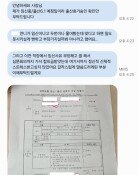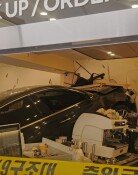Seoul-Washington summit set in June
Seoul-Washington summit set in June
Posted May. 17, 2017 07:24,
Updated May. 17, 2017 07:31
Meeting with a group of special envoys to the four big powers namely the U.S., Japan, China and Russia and Europe on Tuesday, President Moon Jae-in said, “We have inherited a grave diplomatic and national security situation. Filling the vacuum in summit diplomacy is the most pressing task.” The special envoys will convey President Moon’s letters to the respective countries and explain diplomacy and national security policy that the new South Korean administration will push to implement. They will also discuss pending issues including North Korea’s nuclear weapons and missiles, the Terminal High Altitude Area Defense anti-missile system, the Korea-U.S. Free Trade Agreement, and the South Korea-Japan agreement on comfort women (sex slaves). The envoys should accurately inform and communicate with those countries to ensure that they will not misunderstand or have ill-advised expectations on the Moon Jae-in administration, but strengthen cooperative ties.
The envoys are being sent at a time when the chief and two vice chiefs of the presidential National Security Office, the command central for South Korea’s diplomacy and national security, and the ministers of foreign affairs, unification and defense have yet to be nominated. The formation of a new Cabinet requires approval by Prime Minister-nominee Lee Nak-yeon, but some watchers say that President Moon is agonizing over the "alliance group" that values the South Korea-U.S. alliance and the "self-reliance group" that pursues a balanced diplomacy. While the former Lee Myung-bak and Park Geun-hye administrations focused on the "alliance group" for their diplomacy and national security lineups, rumors have it that the Moon Jae-in administration will recruit former members of the "self-reliance group" from the Roh Moo-hyun administration. Park Seon-won, former presidential secretary for unification, foreign affairs and national security strategy who is a member of the special mission to the U.S., and Seo Joo-seok, former presidential secretary for unification, foreign affairs and national security policy, are categorized into the "self-reliance group." Former vice chief of the national security situation taskforce in Moon’s election camp, Park is strongly trusted by the president as evidenced by the fact Park planned an ‘entourage for visit to China for THAAD, and visited Beijing in person together with seven lawmakers in January.
During the Roh administration, the "alliance group" and the "self-reliance group" confronted with each other on all different issues including deployment of additional South Korean troops to Iraq, negotiations over relocation of the U.S. military base from Yongsan, and transfer of wartime operational control from the U.S. When President Roh, who once said it should be okay to be anti-American, suggested the theory of "balancer in Northeast Asia," critics in Washington responded angrily, saying “Is South Korea moving to exit from the alliance?” The South Korea-U.S. relations were so perilous that the claim the ties were the worst ever was not considered an exaggeration at the time even though it was Roh that started talks on the Korea-U.S. trade pact, and sent additional South Korean troops to the Zaitun Unit in Iraq. If Moon is being influenced and swayed by former members of the self-reliance group who have the views of political activists, South Korea could face a grave crisis wherein we have to worry about the security of the nation, going beyond "Episode 2 of the Roh administration."
President Moon will hold his first summit with U.S. President Donald Trump in Washington in late June. Moon should solidify collaboration with Washington to counter the North’s nuclear weapons, and confidently discuss a bill for THAAD deployment in the South and demand for renegotiation of the KORUS FTA that President Trump will seek. China is behaving favorably towards President Moon in a bid to seek the withdrawal of THAAD, but the Korean public has realized at cost that China can never be a replacement for the U.S., which is a blood-bonded ally, while witnessing Beijing’s retaliation against THAAD deployment. In order not to repeat the Roh Moo-hyun administration’s failure, President Moon should coordinate interests with China and others on the basis of a robust Seoul-Washington alliance. Moon is advised to translate through acts what he called "national interest-focused, customized diplomacy of cooperation."
Headline News
- N. Korea launches cyberattacks on S. Korea's defense companies
- Major university hospital professors consider a day off each week
- Italy suffers from fiscal deficits from ‘Super Bonus’ scheme
- Inter Milan secures 20th Serie A title, surpassing AC Milan
- Ruling and opposition prioritize spending amid tax revenue shortfalls







